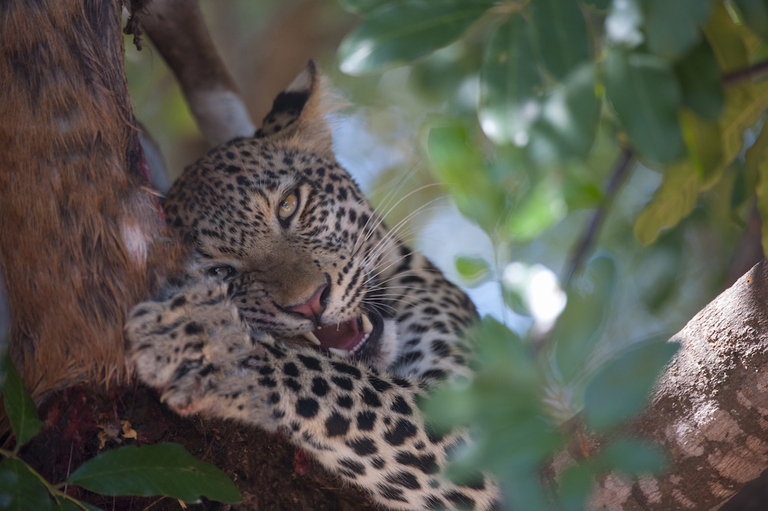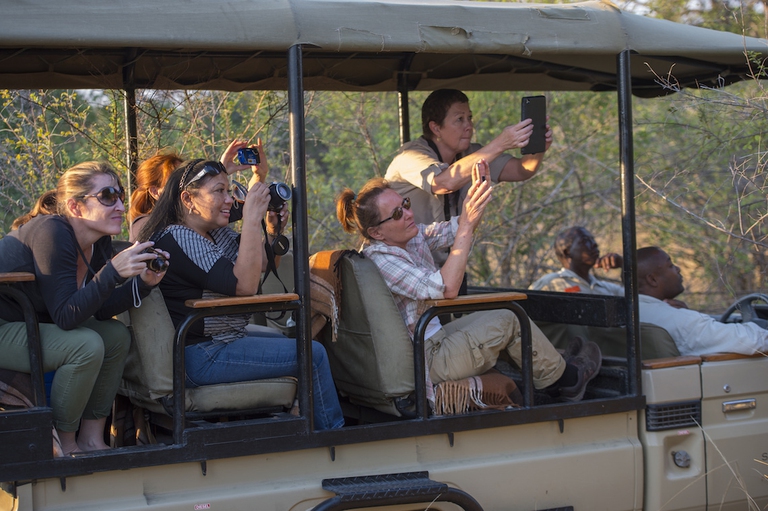
Our species took its first steps in a world covered in trees. Today, forests offer us sustenance, shelter, and clean the air that we breathe.
The Zambian government has put in place new plans with regards to a hunting ban concerning big cats in order to regulate wildlife populations. Big cats are found in all of the country’s national parks, but their numbers are depleting significantly. According to estimates, the country has between 2,502 and 4,668 lions. Too few big cats “The
The Zambian government has put in place new plans with regards to a hunting ban concerning big cats in order to regulate wildlife populations. Big cats are found in all of the country’s national parks, but their numbers are depleting significantly. According to estimates, the country has between 2,502 and 4,668 lions.
“The country did not have enough stock of the cats for hunting purposes,” Jean Kapata, the country’s tourism minister said in an interview. “We decided to ban the hunting of lions and other cats on understanding that their populations were depleting to such low levels; we find it unsustainable to continue killing them”.
She however said hunting of other animals will be conducted under laid down conditions and strict supervision on the part of the Zambia Wildlife Authority (ZAWA).
Critics say the ban comes too late, as conservationists warn that wildlife populations in the country’s major national park now face a greater threat from poaching than at any time since the 1980s.
Outnumbered, poorly-paid and ill-equipped, Zambian game rangers fight a one-sided war against vicious illegal poachers. Hundreds have been killed in the defence of depleting wildlife. For example, with no sniffer dogs or helicopters only 115 rangers guard the entire 22,400 square kilometres of Kafue National Park, the country’s biggest. They face poachers who work in gangs and who killed over five lions in July this year.
However, since Zambia needs more money for its wildlife conservation projects, it is imperative for the government and its people to focus on wildlife tourism and the shooting of animals with cameras and not guns.
“Zambia could realise its potential as a tourist destination, especially including efforts to preserve the wildlife that forms the core of the country’s tourism appeal and which is under threat from poaching and trafficking,” in the words of Eric Shultz, US Ambassador to Zambia. He said Zambia prides itself of having arguably the richest biodiversity on the continent, which requires its people to guard it against extinction.
Siamo anche su WhatsApp. Segui il canale ufficiale LifeGate per restare aggiornata, aggiornato sulle ultime notizie e sulle nostre attività.
![]()
Quest'opera è distribuita con Licenza Creative Commons Attribuzione - Non commerciale - Non opere derivate 4.0 Internazionale.
Our species took its first steps in a world covered in trees. Today, forests offer us sustenance, shelter, and clean the air that we breathe.
Poachers in Africa are encroaching on wildlife land and killing rhinos in travel hot spots now devoid of visitors due to the coronavirus pandemic.
Actor and environmental activist Leonardo DiCaprio has contributed two million dollars to a fund to protect Virunga National Park in Congo from threats such as terrorism, the coronavirus and poaching.
For the first time in seventeen years, Iceland’s two main whaling companies won’t resume whale hunting. The announcement concerns this year’s season but could carry into the future.
The relationship between the coronavirus and wildlife is complex: while the pandemic may lead to a reduction in the illegal trade in wild animals, it may also encourage it in other respects.
The largest coral reef in the world is severely threatened by climate change, but researchers are developing strategies that could contribute to saving the Great Barrier Reef.
NGO Free the Bears has opened a mountain sanctuary for moon bears in Laos. With the government’s help, it aims to close all bile farms by 2022.
Seychelles have extended its marine protected area, which now covers over 400,000 square kilometres, an area larger than Germany.
The tapir was reintroduced into Brazil’s Atlantic Forest, the country’s most at-risk ecosystem. The species can play a key role in the forest’s recovery.









